Related Research Articles

Thomas Woodrow Wilson was an American politician and academic who served as the 28th president of the United States from 1913 to 1921. A member of the Democratic Party, Wilson served as the president of Princeton University and as the governor of New Jersey before winning the 1912 presidential election. As president, Wilson changed the nation's economic policies and led the United States into World War I in 1917. He was the leading architect of the League of Nations, and his progressive stance on foreign policy came to be known as Wilsonianism.

The 1912 United States presidential election was the 32nd quadrennial presidential election, held on Tuesday, November 5, 1912. Democratic Governor Woodrow Wilson of New Jersey unseated incumbent Republican President William Howard Taft while defeating former President Theodore Roosevelt and Socialist Party nominee Eugene V. Debs.

William Jennings Bryan was an American lawyer, orator, and politician. Beginning in 1896, he emerged as a dominant force in the Democratic Party, running three times as the party's nominee for President of the United States in the 1896, 1900, and 1908 elections. He served in the House of Representatives from 1891 to 1895 and as the Secretary of State under Woodrow Wilson from 1913 to 1915. Because of his faith in the wisdom of the common people, Bryan was often called "the Great Commoner", and because of his rhetorical power and early fame as the youngest presidential candidate, "the Boy Orator".

Henry Wilson was an American politician who was the 18th vice president of the United States from 1873 until his death in 1875 and a senator from Massachusetts from 1855 to 1873. Before and during the American Civil War, he was a leading Republican, and a strong opponent of slavery. Wilson devoted his energies to the destruction of "Slave Power", the faction of slave owners and their political allies which anti-slavery Americans saw as dominating the country.
William Julius Wilson is an American sociologist, a professor at Harvard University, and an author of works on urban sociology, race, and class issues. Laureate of the National Medal of Science, he served as the 80th President of the American Sociological Association, was a member of numerous national boards and commissions. He identified the importance of neighborhood effects and demonstrated how limited employment opportunities and weakened institutional resources exacerbated poverty within American inner-city neighborhoods.
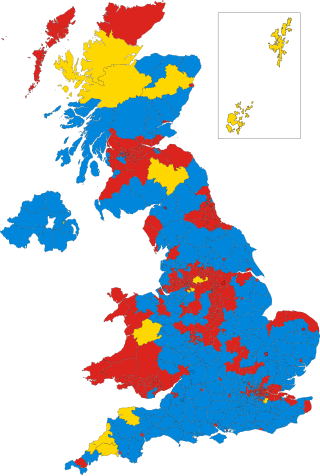
The 1966 United Kingdom general election was held on Thursday 31 March 1966. The result was a landslide victory for the Labour Party led by incumbent Prime Minister Harold Wilson.
William Wilson, or variants, may refer to:

William Gibbs McAdoo Jr. was an American lawyer and statesman. McAdoo was a leader of the Progressive movement and played a major role in the administration of his father-in-law President Woodrow Wilson. A member of the Democratic Party, he also represented California in the United States Senate.
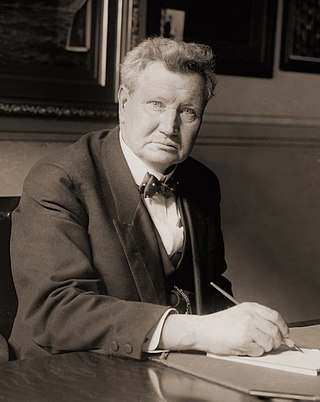
William Bauchop Wilson was an American labor leader and progressive politician, who immigrated as a child with his family from Lanarkshire, Scotland. After having worked as a child and adult in the coal mines of Pennsylvania, he became active as a labor organizer.

William Lyne Wilson was an American politician and lawyer from West Virginia. A Bourbon Democrat, he was elected to the United States Congress in 1882 and served six terms of office, ending in 1895.
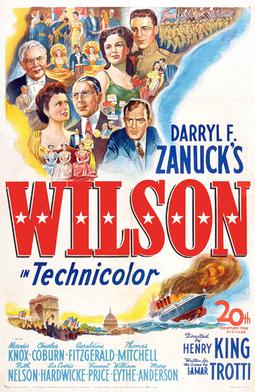
Wilson is a 1944 biographical film about Woodrow Wilson, the 28th president of the United States. Shot in Technicolor and directed by Henry King, the film stars Alexander Knox, Charles Coburn, Geraldine Fitzgerald, Thomas Mitchell, Ruth Nelson, Sir Cedric Hardwicke, Vincent Price, William Eythe and Mary Anderson.

Carrickfergus Borough Council was a district council in County Antrim in Northern Ireland. It merged with Ballymena Borough Council and Larne Borough Council in May 2015 under local government reorganisation in Northern Ireland to become Mid and East Antrim Borough Council.

James Grant Wilson was an American editor, author, bookseller and publisher, who founded the Chicago Record in 1857, the first literary paper in that region. During the American Civil War, he served as a colonel in the Union Army. In recognition of his service, in 1867, he was named brevet brigadier general of volunteers to rank from March 13, 1865. He settled in New York, where he edited biographies and histories, was a public speaker, and served as president of the Society of American Authors and the New York Genealogical and Biographical Society.

William Edward Wilson was an American educator, businessman, and politician from Indiana. He served one term in the United States House of Representatives (1923–1925).
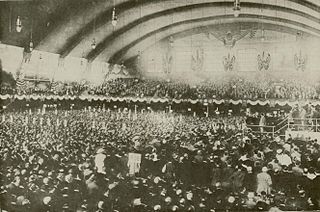
The 1912 Democratic National Convention was held at the Fifth Regiment Armory off North Howard Street in Baltimore from June 25 to July 2, 1912.
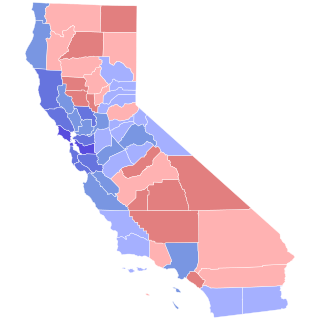
The 1992 United States Senate special election in California took place on November 3, 1992, at the same time as the regular election to the United States Senate in California. Feinstein defeated future California governor Gray Davis in the Democratic primary, while Seymour defeated William E. Dannemeyer in the Republican primary.
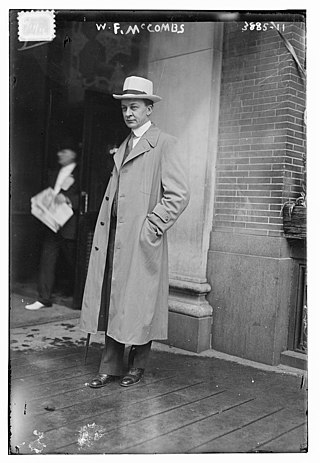
William Frank McCombs was an American lawyer and politician who served as chair of the Democratic National Committee from 1912 to 1916.
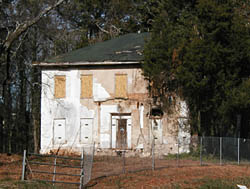
The Judge William Wilson House was an antebellum house in Atlanta, Georgia. It was built on land in a community west of Atlanta that was then called Adamsville which Wilson had inherited from his father William "Dollar Mill" Wilson (1775–1839) in 1839, and as the area around it developed came to be located in the Fairburn Heights neighborhood, a suburban area west of the Perimeter (I-285). At the end, it was one of only a few remaining antebellum structures still standing in its original location within the Atlanta city limits.

The 1926 United States Senate election in Pennsylvania was held on November 2, 1926. Incumbent Republican George W. Pepper, who was appointed following the death of Boies Penrose, was defeated for re-nomination by William Scott Vare. Vare won the election, defeating Democratic opponent William Bauchop Wilson. He was not permitted to assume office, however, until an investigation was conducted into possible election fraud and corruption. Vare was ultimately unseated in December 1929 by the Senate, following charges of corruption.

The 1912 United States presidential election in Wisconsin was held on November 5, 1912 as part of the 1912 United States presidential election. State voters chose 13 electors to the Electoral College, who voted for president and vice president.
References
- ↑ "William Wilson". Political Graveyard. Retrieved 2011-12-13.